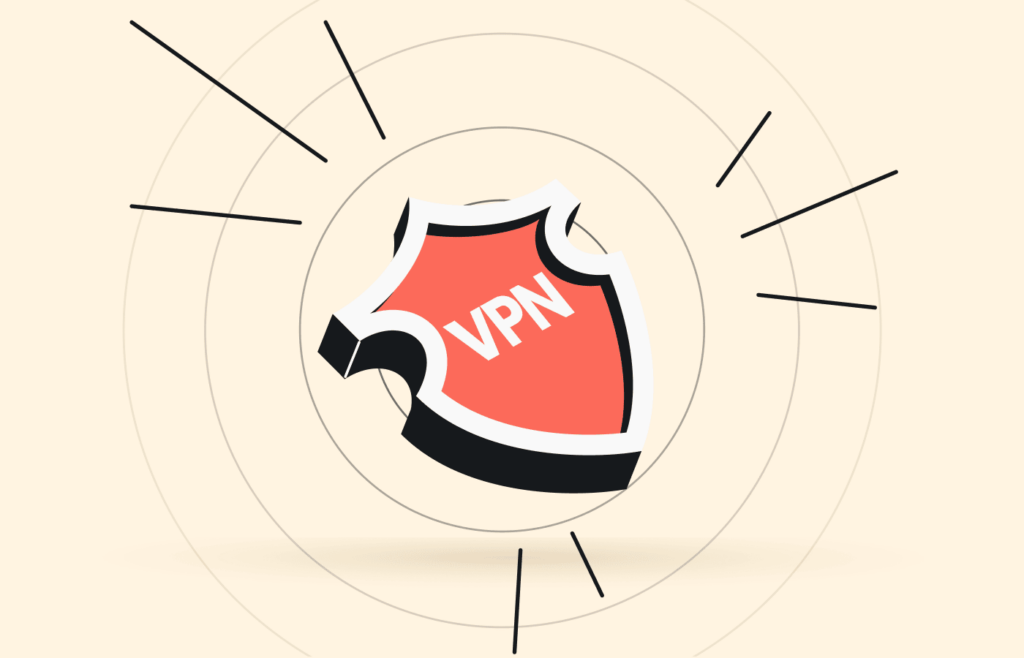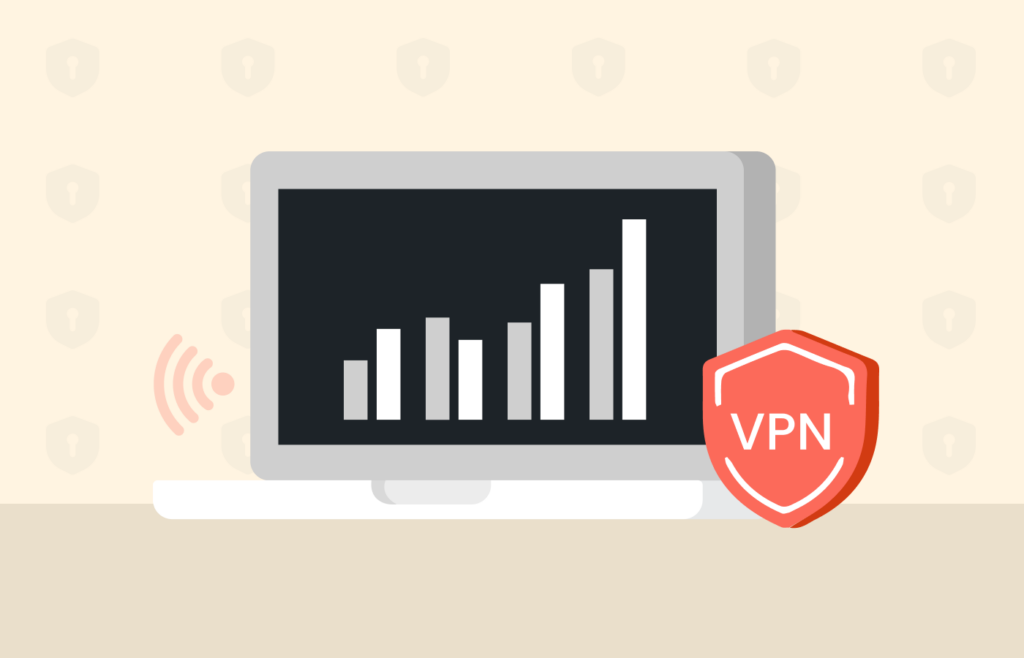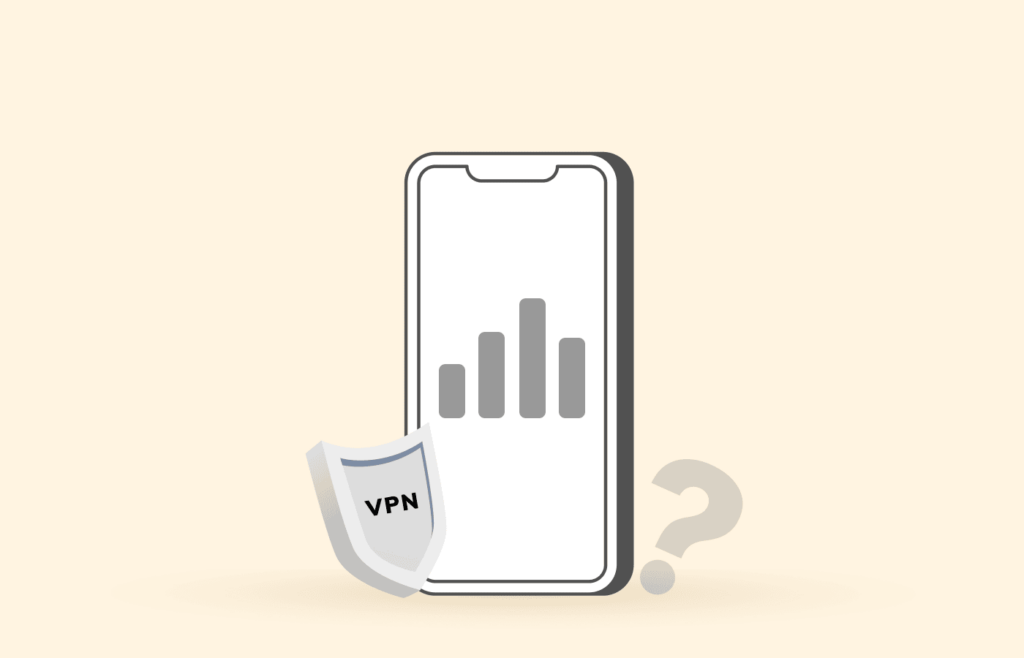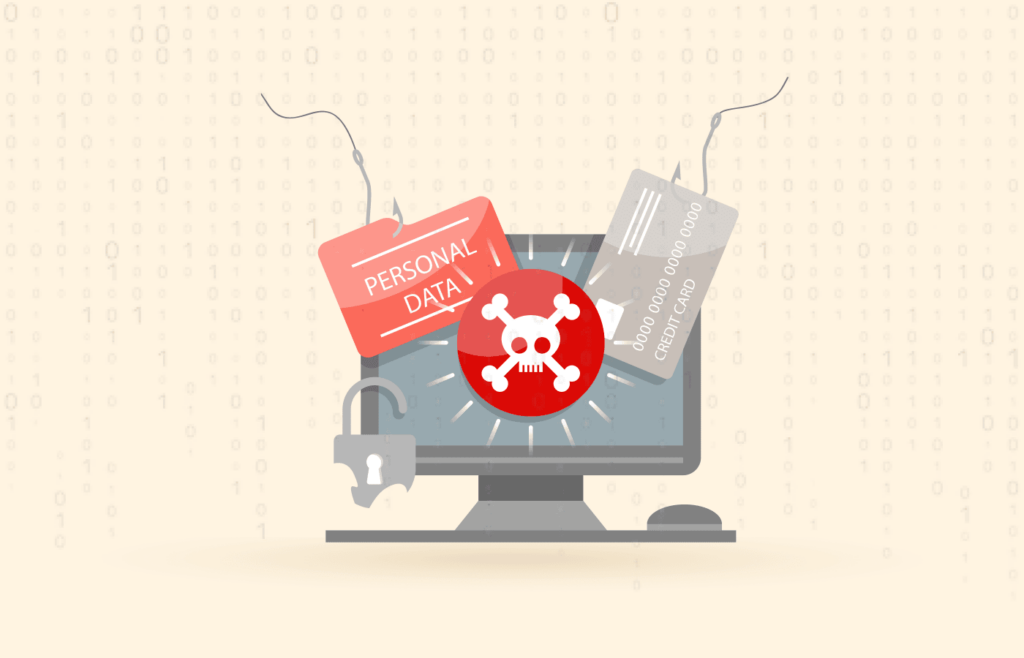A Virtual Private Network (VPN) is a timely solution to digital privacy concerns. It has gained popularity globally, reshaping internet connections and improving online privacy. The latest VPN statistics reveal that many internet users daily seek digital refuge in VPNs.
Top 10 VPN usage statistics – Quick list

Here are the top 10 statistics about VPN usage globally.
- As of 2023, there are about 1.5 billion VPN users globally.
- About 93% of institutions and organizations use a VPN as of 2023.
- About 62% of VPN users are male.
- 50% of VPN users globally use it for business purposes, while 77% use VPNs for personal purposes.
- As of 2023, around one-third of the over 5 billion internet users globally use a VPN.
- About 31% of internet users globally have, at one point, used a VPN.
- The combination of the business and consumer VPN market is valued at about $44.6 billion globally, with a projected growth to about $75.59 billion come 2027.
- 43% of internet users globally believe they cannot control their personal information on the internet.
- 69% of VPN users connect their mobile phones to the VPN, while 72% connect their desktop or laptop.
- Around 39% of VPN users are aged between 16-24.
VPN cybersecurity and privacy statistics

Digital privacy and security are paramount for individuals, organizations, and governments as they communicate via the Internet, especially when sharing top-secret information or personal details. They can suffer a great risk if unauthorized third parties access their communication or when confidential information gets into the wrong hands.
A VPN can avert potential data leaks or breaches and ensure military-grade encryption. Recent VPN cybersecurity and privacy statistics (listed below) also demonstrate this.
1. The United States government budgeted $15.6 billion to cater to cybersecurity for the fiscal year 2023

According to Accenture Security, one-third of companies with annual revenues of at least $1 billion from 15+ countries globally recorded a 25% increase in the fight against cybercrimes and attacks. The organization surveyed about 2,000 executives of different companies globally.
Statistics have further revealed that the cybersecurity areas that recorded the most significant increase include network security, threat detection, and security monitoring. (Statista)
2. 93% of cybersecurity experts pay attention to cloud security
About 93% of tech and cybersecurity professionals have expressed concerns about cloud security for safeguarding business and private data. While 38% show their concern for cloud security, 37% pay close attention, hinting that attacks and threats relating to cloud storage are rampant and serious. (Cybersecurity Insiders)
3. Between 74% and 80% of internet users in America have reduced internet usage because of privacy concerns
Internet usage statistics in the United States indicate that Americans are learning to be more careful about sharing information online. Of the internet users who participated in the survey, 74% claimed they had limited internet usage. Of the 74%, 51% have stopped clicking on pop-up ads, 32% haven’t installed any app or product on their device, and 44% have stopped sharing personal information due to privacy concerns.
However, out of all the internet users in the United States who stopped using the internet or mobile apps, about 47% said they stopped because they didn’t want to divulge too much information about themselves. (Statista)
4. About 2,000 internet users in the United States don’t want their online data stored but cannot do anything about it
Recently, the clamor for online privacy and data protection has caused most Americans to express their inability to control how their information is used on the internet. The latest stats revealed that around 80% of people with social media accounts have expressed concerns about businesses and advertisers gaining access to their data. Only 9% believed that social media organizations protect their users’ data. (The Annenberg School for Communication, University of Pennsylvania, ASC UPENN)
5. Nigeria ranked the lowest in VPN adoption rate in 2022, with about 3.4%

A survey revealed that many Nigerians still need education and enlightenment on the benefits of using a VPN for personal and business purposes. The country had a 3.47% VPN adoption rate in 2022, ranking the lowest. There are possibilities for an increase in 2024 as VPN awareness intensifies in countries like Nigeria. Japan and Thailand followed with a 1.48% and 1.91% adoption rate, respectively. (Gitnux)
6. 81% of internet users in America are willing to do more to ensure digital privacy
Online privacy statistics revealed that about 6 in every 10 internet users in the United States understand the need to make conscious efforts to protect confidential information and personal data on the internet. They are also willing to take these steps as their trust in social media companies and the government is fading daily. 77% want more laws to regulate the activities of advertisers, as they believe the current laws are insufficient to guarantee their privacy. (Pew Research)
7. About 52% of internet users believe online privacy doesn’t exist
According to a Digital Information World report, about 52% of internet users have surrendered to digital threats as they deem online privacy nonexistent. However, as VPNs and online privacy activism gained attention, people began realizing the importance of this matter. About 55% believe that tech companies and other private organizations should intensify their efforts to protect their subscribers, while 43% asked the government to intervene. (Digital Information World)
8. Over 40% of internet users are concerned about cybercriminals
Typically, internet users worry about cybercriminals’ ability to access their data, especially if they can use it to steal their identity or defraud them or their relatives. Unfortunately, most internet users have lost trust in media companies, internet service providers, tech companies, and governments to safeguard their data. Only about 5% of internet users are carefree about their data and third-party access. (Statista)
VPN usage statistics

The VPN market has recorded rapid growth in usage and revenue as organizations and internet users from different age groups jump on the bandwagon daily. That’s owed to how it solves security and privacy concerns and geographical restrictions.
Following are some noteworthy statistics about VPN use.
9. Over 77% of VPN users purchase digital content monthly
Statistics reveal that about 77% of VPN users buy content on the internet monthly; of this 77%, 33% pay to download music on their devices. About 27% of VPN users are split between paying for access to mobile apps, movie streaming services, and music streaming platforms. (Global Web Index)
10. In 2022, the VPN industry was worth about $44.6 billion and is projected to hit $75.59 billion by 2027
The global VPN market has experienced steady growth since internet users discovered the solutions a VPN provides. In 2016, the global market was worth $15.64 billion. The market recorded an average increase of about $2.5 billion. The 2021 projection put the VPN market at about $31.1 billion, predicting a $4.5 billion increase. Also, the 2022 market projection pegged the VPN industry at about $12 billion. (Statista)
11. As of 2023, 43% of VPN users use it to improve digital security
About 43% of VPN users connect their mobile devices and computers to the VPN primarily to address privacy concerns. The latest statistics from Gitnux about VPNs revealed that only 9% of VPN users connect to a VPN to bypass geographical restrictions and access entertainment content.
Others use a VPN to maintain anonymity while using the internet or gain access to websites, news services, or social networks. Another reason internet users use the VPN service is to access official websites, services, files, and resources. The final reason in the top five reasons for VPN usage is communicating with family and friends in other countries.
Here’s a breakdown of the primary VPN uses:
- Security (43%)
- Streaming (26%)
- Privacy (12%)
- Unblocking content (9%)
- Travel (4%)
- Gaming (3%)
- Work (3%)
12. 47% of internet users partially use VPNs when they travel abroad
Global internet statistics reveal that travel and tourism largely contribute to the global expansion of the VPN industry. This is because the Asia-Pacific region and other regions with strict restrictions, laws, and regulations make access to the Internet almost impossible. Hence, visitors and citizens require a VPN to remain connected to the internet. (VPNUnlimited)
13. About 47% of VPN users requiring it for personal reasons use a free VPN service
Almost half of personal VPN users prefer using a free VPN service, especially because they need it to access geo-restricted content and not for security or privacy concerns. The downside of using a free service is that it does not provide optimum functionality. Over 60% of personal VPN users who use free VPNs usually encounter challenges like streaming issues (12%), slow internet speed (39%), and repetitive ads (13%).
14. Over 31% of internet users require a VPN to use the internet
Surfshark’s report on internet users shows that the use of VPNs globally is steadily increasing. This growth began almost immediately after the widespread market acceptance of smartphones and the adoption of the Internet for business transactions and remote work. (Surfshark)
15. 74% of all VPN users are between 16 and 24
Global Web Index conducted a demographic-based VPN usage survey, revealing that about 74% of VPN users are below 24 years old, and 67% are aged between 25 and 35. This hints that older generations require enlightenment on VPN use and its benefits. The same survey provides that around 28% of VPN users globally are between 45 and 54, while another 28% have passed the age of 55. (Global Web Index)
16. About 90% of the companies offering VPN services today were established after 2005
Interestingly, almost all the VPN service providers today were not in operation as of 2005. Out of 50 VPN companies that participated in the survey, 45 were founded after 2005, indicating the era that welcomed privacy concerns globally. This widespread privacy concern caused tech companies to develop solutions. Some VPN service providers founded in 2005 still offer premium encryption and unblocking services, including StrongVPN, IPVanish, and HMA VPN. (ACM Internet Measurement Conference)
17. 69% of internet users connect their mobile devices to a VPN
According to a GWI survey, 69% of internet users connect their mobile phones to a VPN, while 72% connect their computers to a VPN. 62% of VPN users who use the service daily connect to VPN servers with desktops. VPN usage statistics show that connecting to a VPN with a desktop is preferable. However, VPN users who connect with mobile phones are active daily. (Global Web Index)
The survey revealed that out of the VPN users using the service between four to five times weekly, desktop users are in a 3% lead (14% compared to the 11% for mobile phone users). Desktop users are also in a 2% lead for the most active users two to three times weekly (11% vs. 9%).
18. As of 2022, Indonesia has the highest VPN usage
Asians use VPNs more than any other nation, probably due to the strict restriction policies and regulations. Over 55% of internet users in Indonesia used a VPN in 2022, maintaining a spot as the top country with the highest VPN usage globally. Coming right behind Indonesia is India, with about 43%. The United Arab Emirates was the third on the list, with a 38% VPN usage rate. (Global Web Index)
19. Over 56% of VPN users globally use Netflix monthly
According to Netflix, many subscribers outside the United States are interested in accessing some movies and TV shows exclusive to the Netflix US content library. VPN statistics have revealed that about 5 of every 10 Netflix subscribers bypass Netflix geo-blocks to watch restricted content on Netflix. Because Netflix is a global platform with subscribers worldwide, millions of people use VPN to unblock geo-restricted content.
It becomes more obvious when we examine the reports from Mexico or Canada. About 49% of VPN users in both countries admitted using the VPN to stream and download geo-restricted content on Netflix. In Brazil, 37% of VPN users revealed that they also use VPN for the same purpose, with the UK, Ireland, and India next on the list. (Global Web Index)

20. NordVPN ranked the best VPN service provider in 2022
NordVPN earned a 4.8 of the 5-star ranking in 2022 for its premium VPN services. This ranking earned it a top spot as the best VPN service provider in 2022. NordVPN subscribers gave it a positive review because of its affordability, effectiveness, simplicity, and speed. Surfshark ranked second with a ranking of 4.6. (Gitnux)
21. 62% of VPN users globally are men
According to statistics on global VPN users, there are discrepancies between genders. The statistics reveal that only about 38% of VPN users globally are women. Globally, only about 50% of VPN users connect to a VPN as often as once monthly. Among them, 40% are women, while 60% are men. (Statista)
22. VPN usage is restricted in over 15 countries
In 2024, about 19 countries had laws and regulations limiting the use of VPNs within their territories. While using VPNs in Belarus, North Korea, Iraq, and Turkmenistan is illegal, other countries like the United Arab Emirates, Oman, Uganda, and Russia have heavy restrictions on VPN usage. Other countries have lighter or no VPN restrictions. (Surfshark)
23. About 36% of VPN users in the United States and the United Kingdom connect to a VPN server at least once daily
Most VPN users in the United States and the United Kingdom connect to a VPN to ensure digital privacy and security while using the internet. Hence, daily VPN usage is the norm for one-third of VPN users. About 41% of people use a VPN at least once weekly, while only 10% connect to a VPN service less than once monthly. (Statista)
How many cyberattacks happen each year in the United States?

Ascertaining the exact figure for yearly cyberattacks in the United States is impossible. This is because while some are not recorded or reported, others may be unsuccessful.
However, regarding how many internet users were victims of cybercrime yearly in the United States between 2015 and 2021, FBI reports suggest that almost 500,000 internet users (496,501) were victims of cybercrime in the United States in 2021. Approximately that’s about 1,360 victims each day.
Note that this is an improvement compared to the 2020 report. There was a great surge in cyber attacks in 2019 and 2020, with approximately 1,481 victims daily.
The COVID-19 pandemic in 2020 ushered in various forms of scams and cyber attacks. However, these formats have lost effectiveness as internet users become smarter and invest in digital security.
Related:
- The 41 Hacking Statistics and Facts You Should Know
- Key Internet Censorship Statistics From Around the World
- Top Netflix Statistics and Facts For Streamers
- 37 Digital Piracy Facts and Statistics You Must Know
FAQs
A VPN is a technology that creates an encrypted tunnel for users’ data traffic to pass through. This tunnel ensures secure internet connections and safeguards users from third-party surveillance.
Countries have different laws determining whether or not VPNs are legal within their territories. For example, VPNs are illegal in countries like North Korea, Russia, and Iran while legal in Canada, the United States, and the United Kingdom. Researching the country’s position on VPNs is important before using them.
VPNs encrypt users data traffic. Hence, web servers can’t monitor or track users. This can only happen if your internet service provider reveals your identity or your VPN service provider logs your data and sells it to a third party.
There are several VPNs providing quality encryption and unblocking services. However, the top three are ExpressVPN, Private Internet Access (PIA), and ExtremeVPN.

